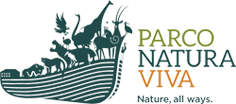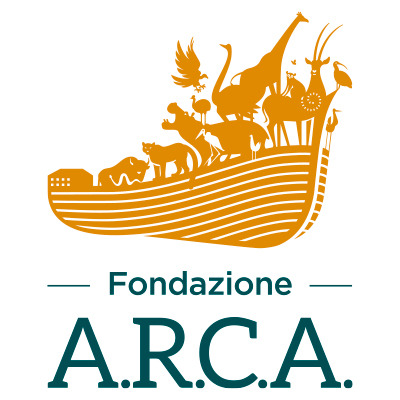The EU funded LIFE+ project “Reason for Hope” on the Northern bald ibis, coordinated by the Austrian association “Förderverein Waldrappteam", is the first science-based attempt of reintroduction of a migratory species in its area of origin. The aim of the project is to restore the migratory route of the Northern bald ibis from the breeding quarters in Germany and Austria to the wintering area in Tuscany. Parco Natura Viva represents the only Italian Partner of this important project dedicated to teaching young ibises, born and raised in controlled environment, the possible migratory route towards the WWF Oasis “Laguna di Orbetello”. In the wild, young ibises learn the migratory route by following their parents, thus a specific programme was developed allowing birds to follow humans during the flight. Thanks to imprinting, the attachment that some animal species develop towards the first figure seen after birth, the humans become their foster parents and they lead the animals through the migration aboard an ultralight aircraft. So, the birds following in flight these foster parents aboard an ultralight aircraft. The journey starts from the breeding area of Burghausen, in Germany, and of Kuchl, in Austria, until Orbetello. This way, the ibises learn the migratory route and in springtime they will return to the breeding areas by themselves. So, the Northern bald ibis can form a wild population that is able to migrate alone between the breeding sites in the North and the wintering areas in the South. At the same time, the project carries out scientific research to improve the knowledge of this species in order guarantee a safe survival in the wild to the reintroduced individuals. Lastly, the project also conducts an information campaign directed at hunters since illegal hunting has been and still is the main threat to the survival of this species.
Parco Natura Viva actively contributes also to the initiative “Proyecto Eremita” that, starting from 2003 thanks to the initiative of the Zoobotánico Jerez in collaboration with the Spanish Ministry of Environment, is dedicated to the reintroduction of this species. The project aims at creating a permanent, stable and self-sufficient colony of Northern bald ibis in the area of La Janda, on the Spanish Atlantic coast near Cadiz. The first reintroductions were carried out with individuals born in controlled environment and hand-raised using the foster parents’ method already experimented by the Konrad Lorenz Institute in Austria. A total of 11 Northern bald ibis born in Parco Natura Viva was released in Spain thanks to this project, contributing to the growth of the colony. The project is giving encouraging results and throughout the years, the number of couples that are nesting on the coast is increasing.
With 50% contribution of the LIFE financial instrument of the European Union (LIFE+12-BIO_AT_000143)
 |
 |
 |
Parco Natura Viva actively contributes also to the initiative “Proyecto Eremita” that, starting from 2003 thanks to the initiative of the Zoobotánico Jerez in collaboration with the Spanish Ministry of Environment, is dedicated to the reintroduction of this species. The project aims at creating a permanent, stable and self-sufficient colony of Northern bald ibis in the area of La Janda, on the Spanish Atlantic coast near Cadiz. The first reintroductions were carried out with individuals born in controlled environment and hand-raised using the foster parents’ method already experimented by the Konrad Lorenz Institute in Austria. A total of 11 Northern bald ibis born in Parco Natura Viva was released in Spain thanks to this project, contributing to the growth of the colony. The project is giving encouraging results and throughout the years, the number of couples that are nesting on the coast is increasing.
With 50% contribution of the LIFE financial instrument of the European Union (LIFE+12-BIO_AT_000143)
 Italiano
Italiano English
English Deutsch
Deutsch




